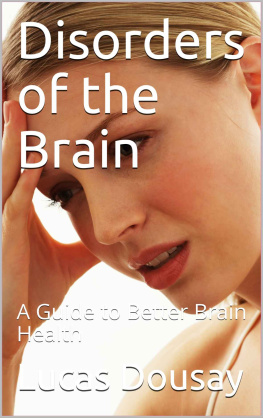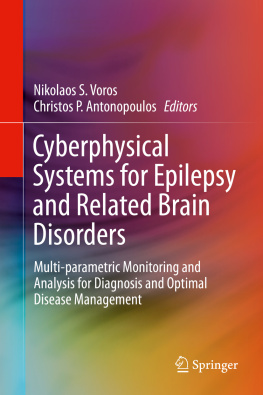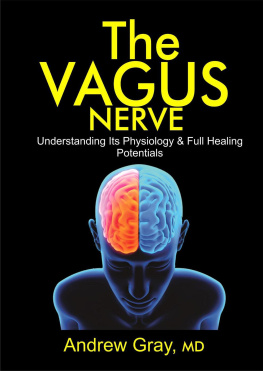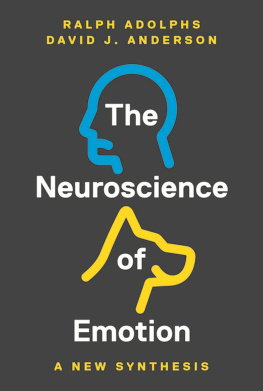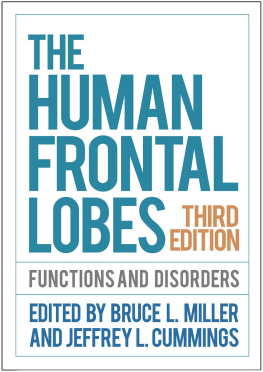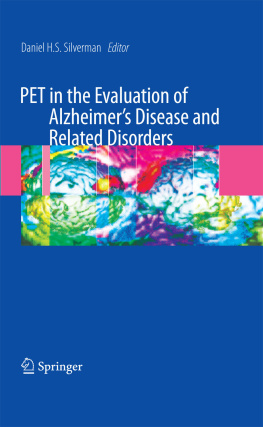Encyclopedia of the Human Brain
V.S. Ramachandran
University of California, San Diego
Elsevier Science Ltd.
Editor-in-Chief
V.S. Ramachandran
University of California, San Diego
V. S. Ramachandran is Director of the Center for Brain and Cognition and professor of neuroscience and psychology at the University of California, San Diego. He is additionally an adjunct professor of biology at the Salk Institute. He obtained an M.D. from Stanley Medical College and a Ph.D. from Trinity College at the University of Cambridge, where he was elected a senior Rouse Ball Scholar.
He has received many honors and awards, including a fellowship from All Souls College, Oxford, an honorary doctorate from Connecticut College, a Gold Medal from the Australian National University, and the Ariens Kappers Medal from the Royal Nederlands Academy of Sciences for landmark contributions in neuroscience.
Dr. Ramachandrans early research was on visual perception, but he is best known for his work in neurology. In 1995 he gave the Decade of the Brain Lecture at the 25th annual (Silver Jubilee) meeting of the Society for Neuroscience. More recently he gave the inaugural keynote lecture at the Decade of the Brain Conference held by the National Institute of Mental Health at the Library of Congress. He also gave the first Hans Lucas Teuber lecture at MIT, the Rudel-Moses lecture at Columbia, the Dorcas Cumming (inaugural keynote) lecture at Cold Spring Harbor, the Raymond Adams lecture at Massachusetts General Hospital, Harvard, and the presidential keynote lecture at the annual meeting of the American Academy of Neurology.
Dr. Ramachandran has published over 120 papers in scientific journals, including three invited review articles in Scientific American, and is editor-in-chief of Academic Press acclaimed Encyclopedia of Human Behavior. His work is featured frequently in the major news media, and Newsweek magazine recently named him a member of the century club: one of the hundred most prominent people to watch in this century.
Editorial Advisory Board
Antonio R. Damasio
University of Iowa College of Medicine
Antonio R. Damasio, the Van Allen Professor and Head of Neurology at the University of Iowa, and Adjunct Professor at the Salk Institute, has had a major influence on our understanding of the neural basis of decision-making, emotion, language and memory, and consciousness. He elucidates critical problems in the fundamental neuroscience of mind and behavior at the level of large-scale systems in humans, although his investigations have also encompassed parkinsonism and Alzheimers disease. The laboratories that he and Hanna Damasio (a distinguished neurologist who is independently recognized for her achievements in neuroimaging and neuroanatomy) created at the University of Iowa are a leading center for the investigation of cognition using both the lesion method and functional imaging.
Dr. Damasio is a member of the Institute of Medicine of the National Academy of Sciences, a Fellow of the American Academy of Arts and Sciences, a member of the Neurosciences Research Program, a Fellow of the American Academy of Neurology, a member of the European Academy of Sciences and Arts and of the Royal Academy of Medicine in Belgium, a member of the American Neurological Association and of the Association of American Physicians, and a board member of leading neuroscience journals. He has received numerous scientific prizes and delivered some of the most prestigious lectures in the United States and in Europe. His book Descartes Error: Emotion, Reason and the Human Brain (Putnam, 1994) is taught in universities worldwide. His new book The Feeling of What Happens: Body, Emotion, and the Making of Consciousness, published by Harcourt, has received several awards and has been translated into 18 languages.
Martha J. Farah
University of Pennsylvania
Martha J. Farah is the Bob and Arlene Kogod Professor of Psychology and the Director of the Center for Cognitive Neuroscience at the University of Pennsylvania. She is known for her work on the neural bases of human perception and cognition, described in over a hundred research publications as well as in five books. Her current interests are in emotioncognition interaction and development. Dr. Farahs work has been honored with a number of awards, including the American Psychological Association Distinguished Scientific Award for an Early Career Contribution, the National Academy of Sciences Troland Research Award, and a Guggenheim Fellowship.
Michael F. Huerta
National Institute of Mental Health
Michael F. Huerta received both his B.A. in zoology and his Ph.D. in anatomy from the University of Wisconsin in Madison. He was a postdoctoral fellow at Vanderbilt University, served on the faculty of the University of Connecticut Health Center, and was a guest researcher in the intramural program of the National Institute of Mental Health at the National Institutes of Health. Most of Dr. Huertas research publications concern sensorimotor integration at the systems level of analysis. He is currently Associate Director of the Division of Neuroscience and Basic Behavioral Research and Director of the Office of Translational Research and Scientific Technology at the National Institute of Mental Health.
Dr. Huertas research efforts are focused on integrating the many disciplines, perspectives, and approaches that comprise neuroscience. He also has significant interest in advancing the research and development of technologies useful to brain researchers, particularly informatics tools. Dr. Huerta has received numerous awards for his leadership in areas including neuroscience, imaging, informatics, and bioengineering. He continues to review manuscripts for journals, edits scientific books, and serves as an editor on the new journal Neuroinformatics.
Sue Iversen
University of Oxford
Sue Iversen is professor of experimental psychology and Pro-Vice-Chancellor for Planning and Resource Allocation at the University of Oxford. She studied for her undergraduate degree and Ph.D. at Cambridge, then spent her postdoctoral years in the United States at the National Institutes of Health and at Harvard Medical School. She was formerly Research Director at the U.S. pharmaceutical company Merck & Co., where she was involved in establishing the largest commercial Neuroscience Research Centre in the United Kingdom, based at Harlow in Essex, and has previously held research posts at Cambridge University.
Dr. Iversens research and publications focus on disorders of brain function, particularly schizophrenia and Alzheimers disease with particular reference to the biological bases of these disorders, their clinical presentation, and treatment. She has published 307 papers, edited 24 volumes, and is co-author with L. L. Iversen of Behavioural Pharmacology. Until recently she was Editor-in-Chief of Neuropsychologia and has held senior office in a number of professional psychological and neuroscience societies.
Edward G. Jones
University of California, Davis
Edward G. Jones received his Medical Degree from the University of Otago, New Zealand, and his Ph.D. from Oxford University. He is an authority on brain anatomy and is recognized as a leading researcher of the central nervous system. He was a leading figure in introducing molecular biology methodology to systems neuroscience, and has done groundbreaking work on schizophrenia, focusing on how changes at the molecular and cellular level are associated with the disorder. Dr. Jones also belongs to a group of scientists who are working on the U.S. Human Brain Project, which supports the development of databases on the brain and development of technologies to manage and share neuroscience information. He was a founding member of the Frontier Research Program in Brain Mechanisms of Mind and Behavior at Riken, Japan.
Next page



